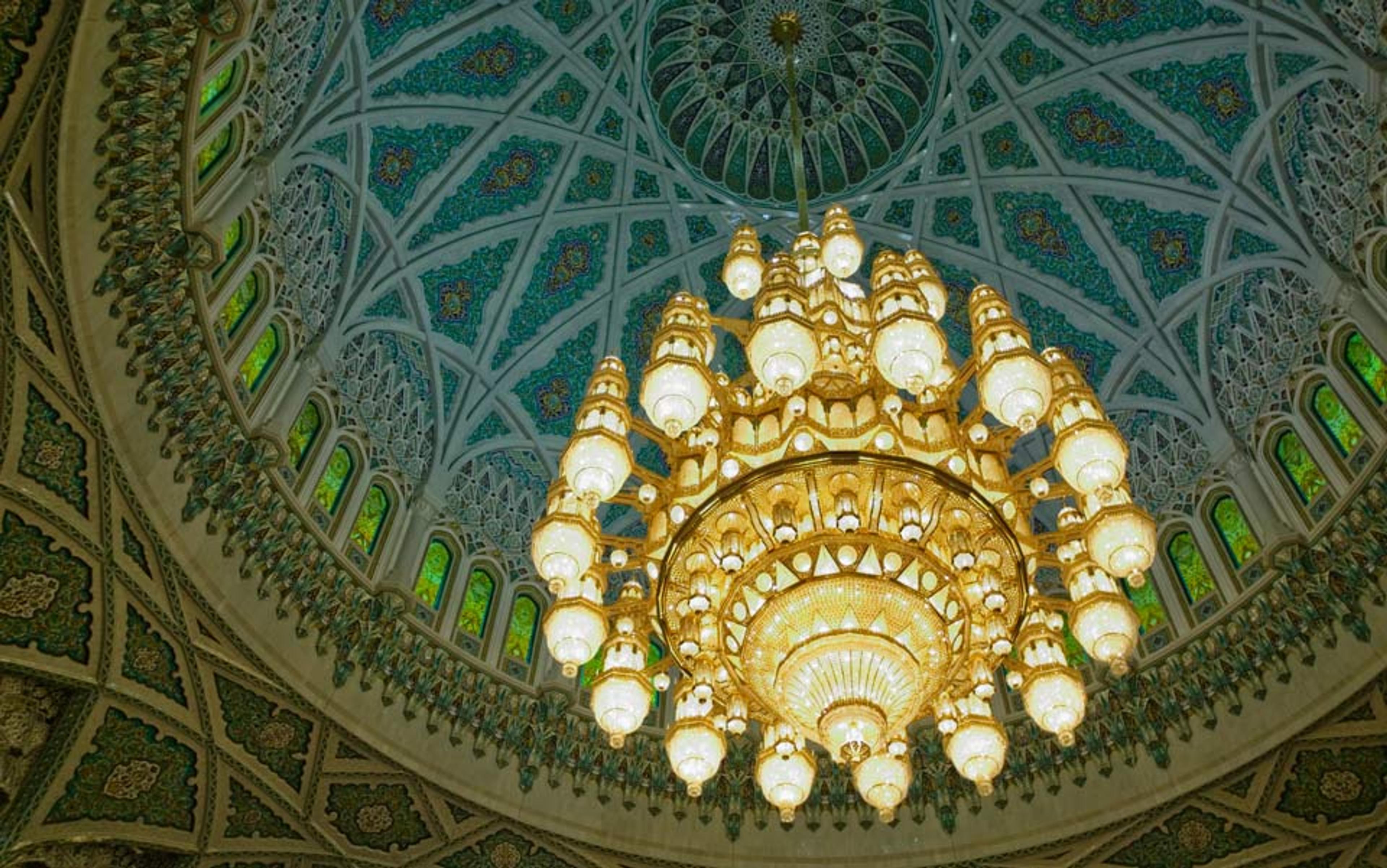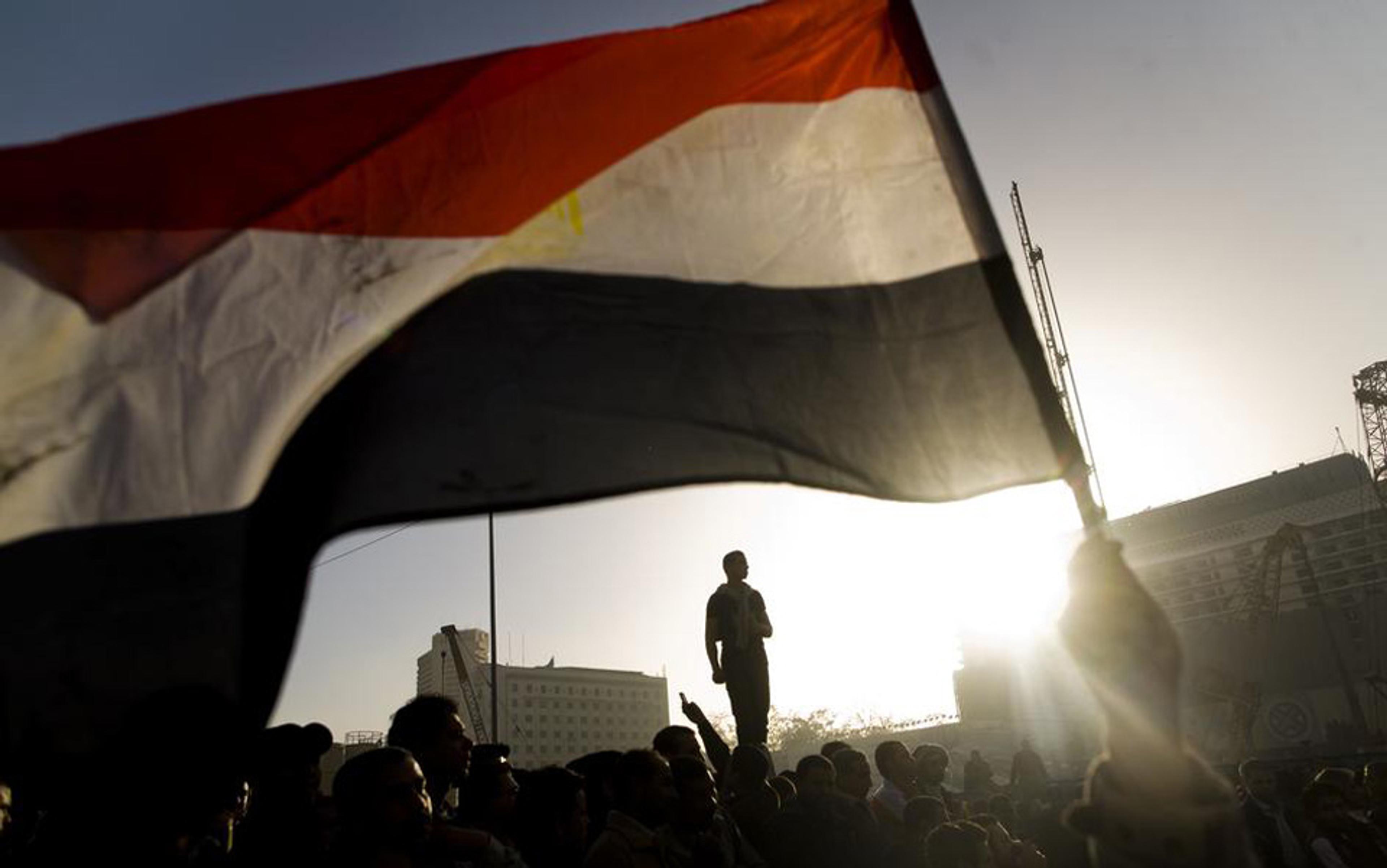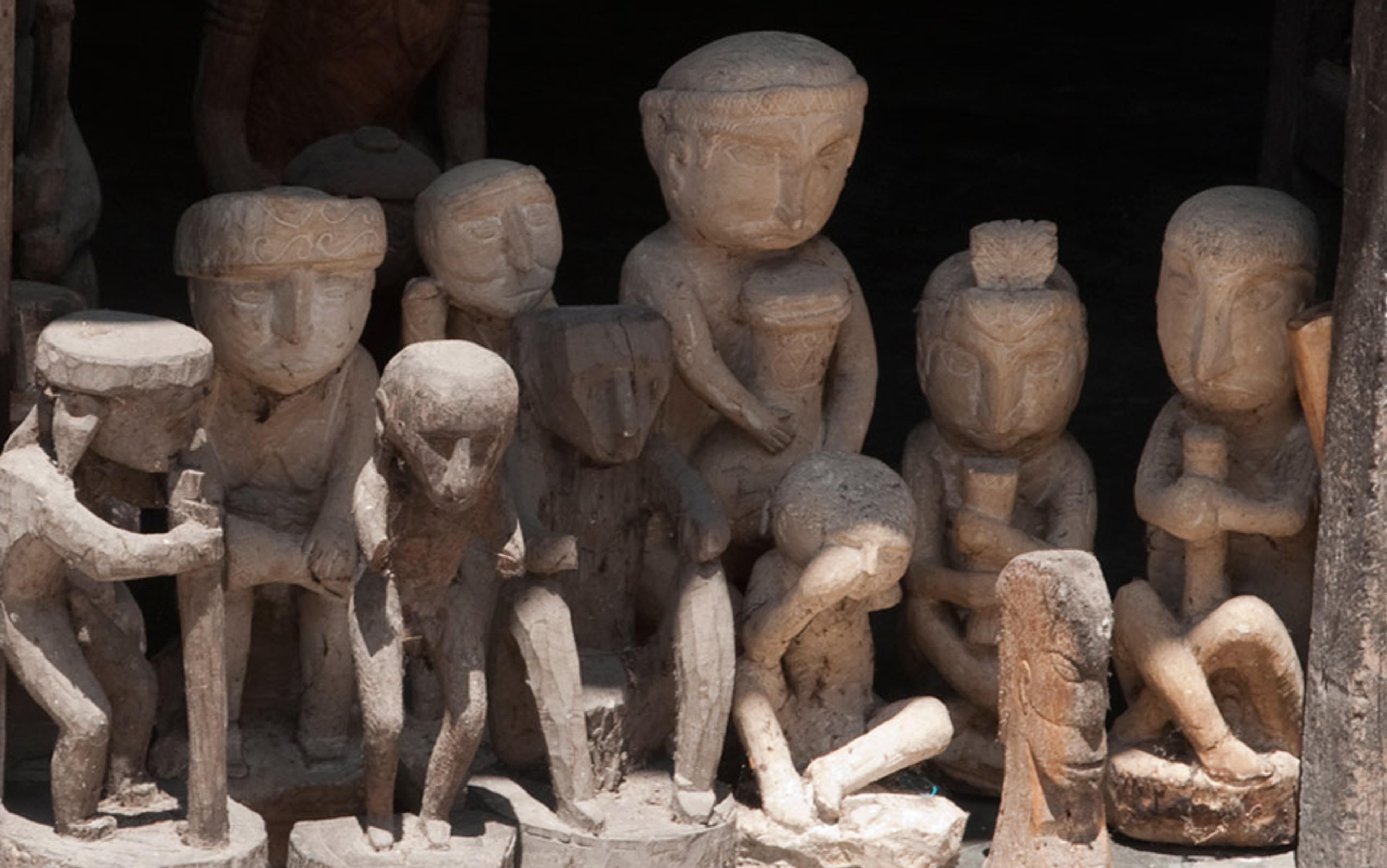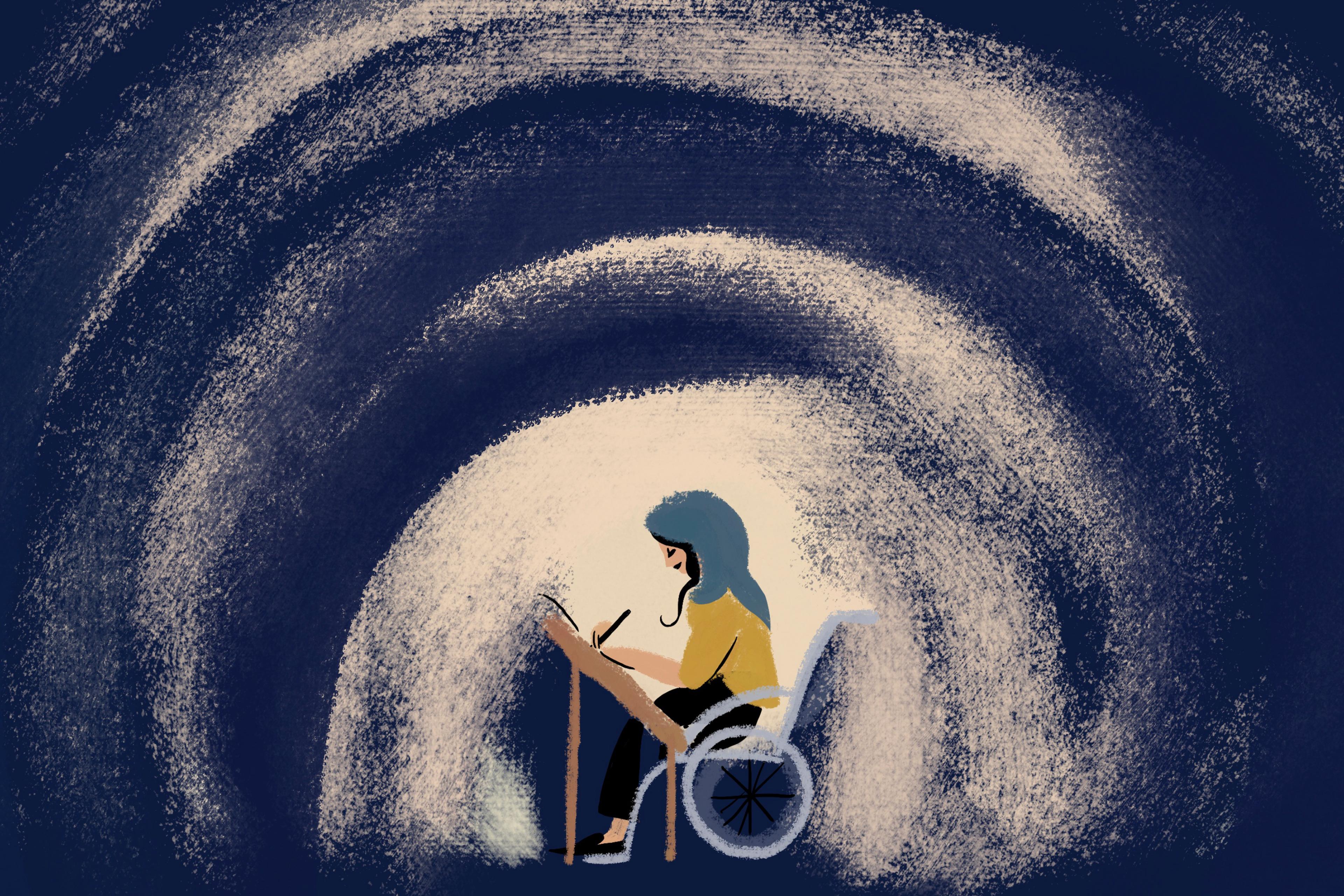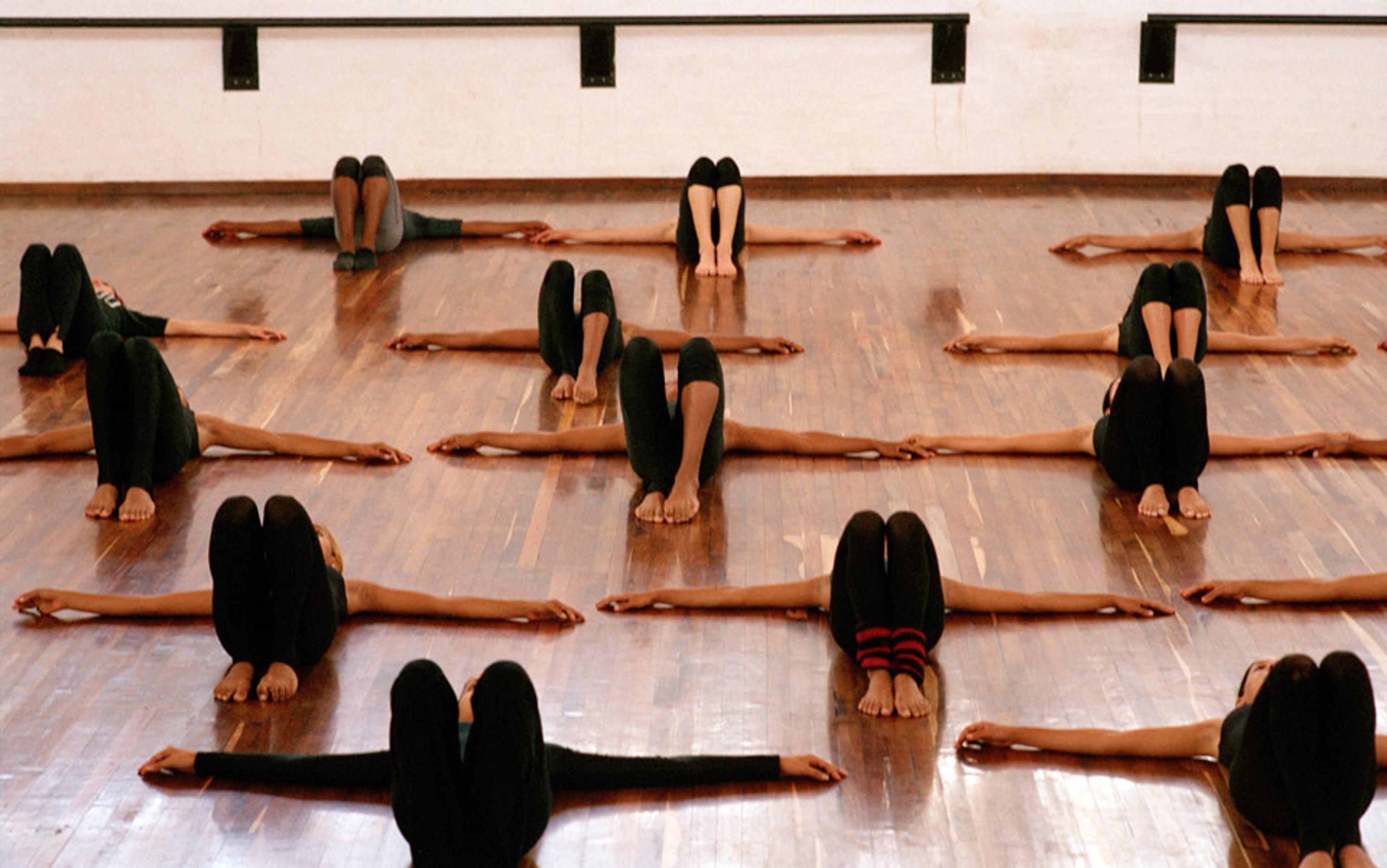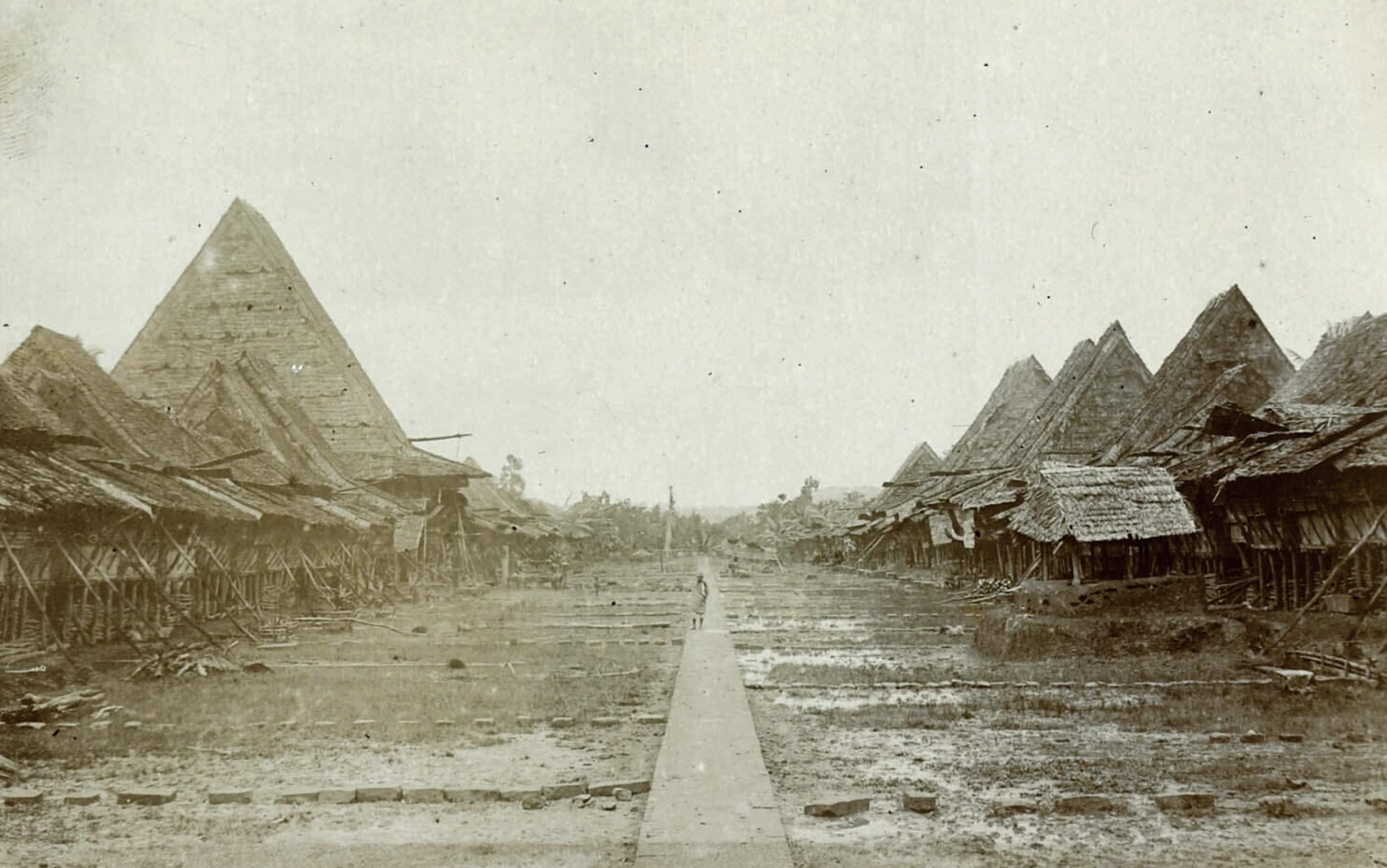His Majesty Sultan Qaboos Bin Said al-Said’s eyes meet mine as I step out into the airport. Such a welcome is common, I immediately gather; unavoidable in fact. Our host’s photographed face dominates the arrivals hall. Beneath his gaze, all voices vanish. The few tourists wait expertly in line without speaking a word. Silence reigns. Instead of a ticking wall clock, an enormous white turban. Instead of a loudspeaker, a neatly trimmed beard. Instead of a television screen, long fingers outstretched in a wave. But the face on the wall does not smile.
Asked for my travel documents, I watch the official stamp my passport with the date: May 11, 2011. ‘Welcome,’ he says gruffly.
Welcome to the Sultanate of Oman. It is my first trip to the Middle East. I have been invited as a guest of honour, to present a trophy to the country’s next Sudoku champion. The championship is scheduled for the day after next: more than enough time, it strikes me, for my curiosity to get me into trouble. The timing does seem inauspicious. The Arab Spring is in full bloom. Revolts have recently toppled regimes in Egypt and Tunisia. Assad’s tanks lumber through the streets of Syria. UN planes sweep Tripoli’s sky.
A young man shakes my hand. He works for the magazine charged with organising the event. Sunlight thickly coats his waiting car and I almost leap inside to escape the heat. So hot! ‘Summer already. No spring this year,’ my driver laughs.
We drive at speed through the streets of the capital, passing curry shops and squat government buildings on our way toward the mountains. A godsend these roads, says the driver, in a country that is mainly composed of desert. Sinuous miles of compliant tarmac: every inch, the sultan’s doing. His, and the thousands of foreign workers brought in to dig and drill and shift tons of rock and sand. Suddenly, the pitch of the driver’s voice rises. Have I seen the new Fast and Furious? Has it come out in Europe yet? I have no idea. Impossible to get a ticket, he continues. Vin Diesel is huge here; every cinema across the city is packed.
Mountains the colour of rock and sand flow by. A monotony of mountains. Rock and sand as far as the eye can see.
The schedule. Qualifying heats will take place tomorrow, says the driver. ‘The fastest eight go into the final. You don’t need to be there. Plan is, I pick you up in the morning and show you the city.’
I ask: ‘Why Sudoku? In Oman?’
‘Who doesn’t like number puzzles?’ he says. (One of his colleagues later tells me that a quarter of the country’s men cannot read or write. Among women, she says, the figure is one in three.)
We pull up before a brand-new looking multi-storey building. ‘Give me your passport.’ I empty my trouser pocket and meekly hand it over. ‘Wait here. Administrative stuff. Back in a moment.’ The door slams and the car shivers and lightens. I sit and watch a young man with sticky white shirt, coal-black hair and a bright red passport approach the doorman. They shake hands and talk. I do not know this young man, I think. An hour of car banter has left our mutual ignorance intact. I do not know where he lives, what job title he bears, what aspirations and dreams he may have. I watch him take leave of the doorman and disappear inside the hotel.
Presently he emerges. I release the breath that I had been holding in. My passport is returned, along with a room key.
The hotel is nearly empty. (A single German family occupies another breakfast table during my mornings there.) I sit on the bed in my first-floor room and read from a guidebook: The sultanate is an oasis of peace and calm.
Mid-morning and we are back in the car, bound for the country’s biggest mosque. Beside the driver sits a young Indian man, another member of the magazine’s staff. They listen hungrily, stonily as the radio thumps with American rap.
At length, the music slurs and then stops. Through the windscreen I see the Sultan Qaboos Grand Mosque. It is not old. On the sultan’s orders, hundreds of thousands of tonnes of sandstone from India were shipped in and assembled throughout the 1990s. The inauguration took place in 2001. Encircled by minarets, bathed in sunlight, the vast golden dome sparkles like champagne.
What light! Stepping out into it, my slitted eyes can barely see. The heat chases us into the shade of ornate arches. We enter a courtyard of sparkling marble, whose colours alter as the faithful pass. Arches and doorways run parallel in all directions. Pillars, rising sheer from the marble ground, suggest balance and symmetry. At the top of the pillars, concatenations of metal lanterns line the walls, black on white. From a fountain somewhere come the delicious notes of running water.
‘Shoes off,’ says the driver outside the prayer hall. Strangers’ sandals nestle higgledy-piggledy in the cubbyholes provided. In their socks, my guides look even younger than before.
Impatient, the sultan stepped out to remove the offending flap of paper: the envelope yielded at once to his royal touch
Like the majority of his compatriots, my driver belongs to the Ibadi branch of Islam, a distinct group that is neither Sunni nor Shiite. Free will is a matter of considerable theological debate for Ibadi Muslims. Scholars argue that every human action is the creation of Allah. But my driver does not follow these arguments. He has no time for theology. He comes to the mosque once a week, every week, for the Friday prayers. This and the other essential rituals constitute his faith.
Wholly separate from the women’s modest room, the Grand Mosque’s central hall is massive, marvellous, mathematical. A gigantic chandelier hangs from the ceiling in intricate Swarovski crystal. On the floor, protected from the tourists’ feet by a strip of cloth, lies a vast Persian carpet of many geometric shapes and colours. The work of 600 Iranian women’s hands, composed of more than a million knots, its extravagant expanse had been flown in piecemeal, to be stitched together on-site part by part.
Frangipani flowers crowd the surrounding gardens. Their beauty distracts me momentarily from the heat. My driver is reminded of a story about a local sorceress’s little house and garden. One day, the old woman learnt of government plans to demolish her home in favour of a new highway. Desperate not to be turfed out, the witch penned a plea to the sultan and sealed it inside an envelope. When the monarch next visited the town, the woman joined the waiting crowd beside the road. As the sultan’s limousine crept by, she reached out and thrust her message onto the windscreen. The car picked up speed, swiftly departing. ‘Stop the car!’ the sultan ordered, ‘and clear away that obstruction’. But all the chauffeur’s efforts were in vain: the letter would not budge. Impatient, the sultan stepped out to remove the offending flap of paper: the envelope yielded at once to his royal touch. Moved by the witch’s words, he had the highway constructed elsewhere.
‘White magic,’ my driver says. ‘A lot of it is practised here. In the South, there’s a tree that I want to visit one day. The tree is covered with chains. Why? Because the locals say it floats.’ He raises and lowers his left hand by way of illustration.
In the afternoon we go to the marketplace. The car’s thermometer shows only a small drop in the ambient temperature from its 51C (124F) noontime peak. Talking and listening on his mobile phone, the Indian receives an update from his boss: four men and four women have qualified for tomorrow’s final. He is happy, turns to me with a big smile. ‘Everything’s in order — we just got the last permission.’ The last? How many had the organisers required? ‘Eight or nine.’
This is how the sultanate’s administration works. Weeks or even months ahead of time, you file papers with the district, alerting them to the event’s location, purpose, likely number of attendees. The details are sniffed over, the police informed, permission eventually obtained. It is impossible, however, to go ahead without treading on many toes: since one flank of the bureaucracy has received the public’s attention, the others all of a sudden awake, make their own demands, extract their own fees. Every section brandishes its vitality, its inevitability. People in a hall? A fire risk — submit this dossier! Or, the district borders mine — fill out and sign my form! And have you shown everything to the censurer’s office? Number-puzzles, too.
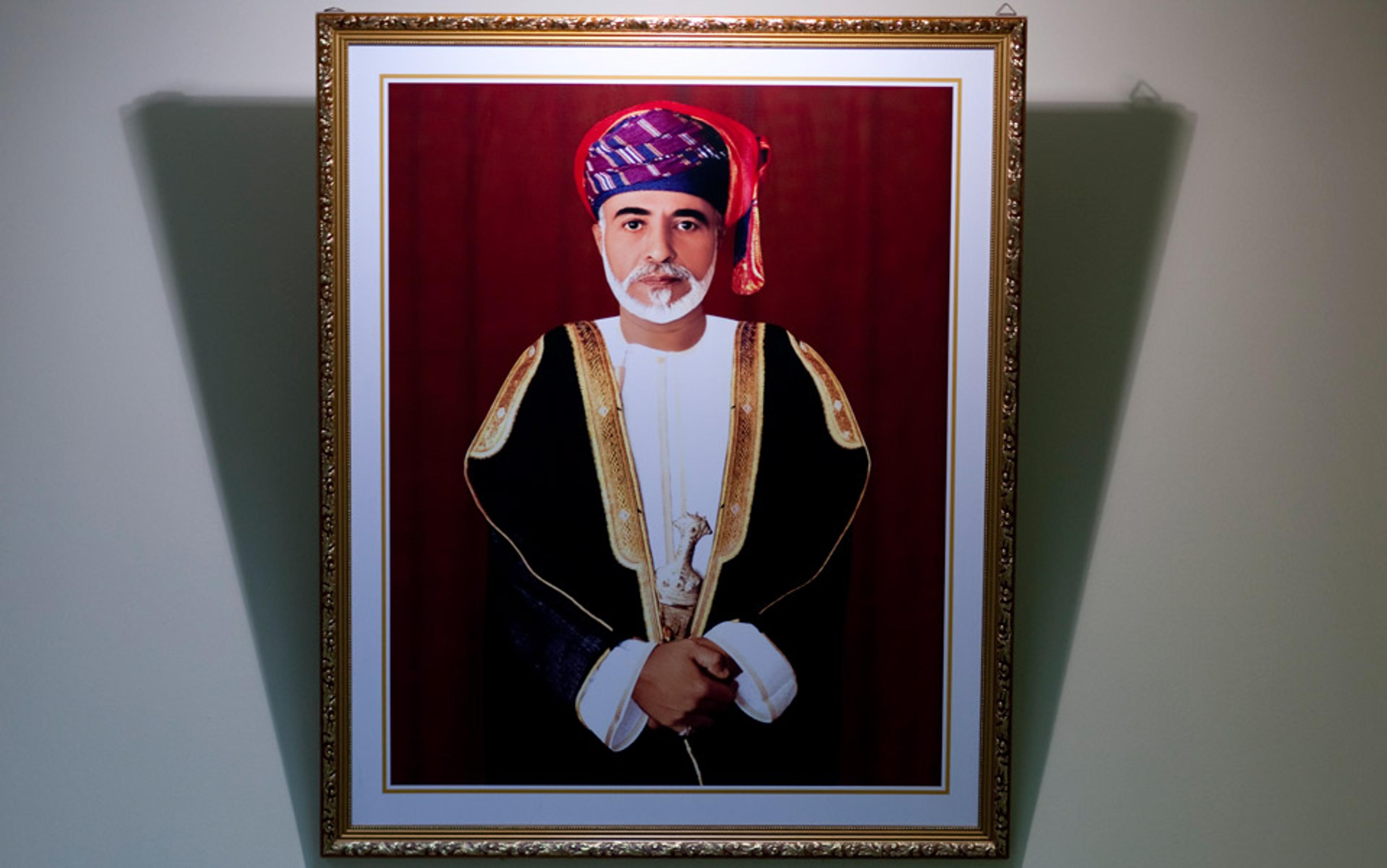
The people do not elect their bureaucrats. They pay no tax (not even on their petrol, which is cheaper here than bottled water), and without taxation there is no representation. Posters and pollsters are unheard of. Political parties are outlawed. Every official is an appointee — accountable only to the sultan, who is also Prime Minister, Minister of Defence, Minister of Finance and Minister of Foreign Affairs. The sultan and the state are one. Everywhere the same 60-something face (looking 10 years younger). The same trimmed beard, the same white turban, building-big. The sultan’s billboard portraits adorn every street like some discounted commodity: a grandfather for sale.
A pair of black niqabs, woman-shaped, traipse by the market. The sellers look bored. They call out their half-hearted spiels as we pass. A thick, pungent smell of frankincense and cooked rice and halva. Headscarves spill over tables. Further on, silver rings and silver coins. Another man selling rugs.
An elderly man slouches against a wall white with dust, leaning his skinny body against the stone. A sucking noise rises from his throat. Suddenly, he drops his head and spits. His spitting makes me want to spit too, as though — concentrating all the heat of my body into my mouth — I might expel it instantly.
We walk to the street beyond the market and watch a group of men playing cards. They sit on a cloth beneath a palm tree and talk. Their voices are low. When not their turn to play, the men enlist their hands. In the Sultanate, the hand is a vital component of conversation. Every gesture is slow, gracious, meaningful. A hand — palm up — twists gently, repeatedly, as if unscrewing a light bulb. Another appears to brush away an invisible spider’s web. A third looks like it is conducting oboes. But most important, most informative, are the digits. On street corners, in mosques, at the tables of a café, so many subtle meanings — shouting fingers, whispering fingers, vow-taking fingers, confiding fingers.
After dark the city awakens. For a few short hours, the heat is tolerable. Traffic mounts; restaurants open. I meet the organisers of the sudoku championship around an outdoors restaurant table. A fan beside us stirs the indolent air. Waiters come and go, depositing chapatis and bowls of fragrant rice. Plates of kingfish attract the mewls of ribby cats. The young men smoke hookah.
Glancing over at them, the magazine’s editor grumbles about their ‘fast cars’. The country has one of the worst records in the world for road deaths. ‘Last night, two more young men killed. We cannot print a word of it in the press.’ Why not? The sultan decides the annual mortality rates. ‘The official statistic goes down,’ he sighs, ‘but the number of accidents keeps going up.’
In the auditorium of a plush hotel, redolent of jacked up air-conditioning, the championship final is underway. Two or three hundred upturned faces watch the men and women on stage. Small cameras, tilted at the contestants’ tables, film their progress, enlarging their hands and grids onto a split screen for the audience.
Sudoku is a game of order, of conformity, of ironclad logic. Every grid comprises nine sub-grids, each containing nine squares. Some of the squares already feature numbers (between one and nine). The solver must fill in the remaining squares such that no sub-grid, horizontal line, or vertical line repeats a digit.
I watch the contestants from my seat in the front-row. I watch the sharpened pencil tips on the screen hover, poke, graze. I watch the numbers multiply; the grids’ empty territories shrink.
In the ensuing commotion the woman stumbles. Surrendered to adjudication, her solution is declared void
The assorted dignitaries next to me are solemn, tight-lipped. Princes, sheikhs, merchants, they wear the dishdasha — a traditional ankle-length white garment — topped with embroidered round caps on their heads.
Five minutes grows into 10 minutes. The puzzle is tricky (‘fiendish’ in the game’s jargon); a single error can turn the grid to quicksand, bogging the solver down. A woman in a sari, her round face showing effort and concentration, scribbles possible solutions — tattoos of tiny numbers — on the outskirts of her page. Stiff pencils hold the men and women’s fingers in thrall. The hands move mutely, inexpressively, all of them alike.
A minute later, the round-faced lady appears on the verge of victory. Laughter and cheers come from the rows behind me. But in the ensuing commotion the woman stumbles. Surrendered to adjudication, her solution is declared void. A mix up of two numbers has left the championship in the balance. The remaining pencils on stage carry on.
All eyes turn to a mustachioed man in the centre. A neat row of ballpoints glistens in the pocket of his shirt. Finally, he traces a vertical line between a three and a seven and throws his arms aloft. The champion.
I hand him the trophy, and he seems surprised by its weight.
Before my flight back, I accept an invitation to a dignitary’s home. He is a retired merchant, my driver informs me, and his knowledge of the country’s history is second to none. Then he turns up the radio and I take refuge in the morning’s English-language paper. Above a brief front-page report of yesterday’s competition, a headline: ‘Provocateurs held’. I read:
An official security source said security and military authorities yesterday arrested a number of provocateurs in Muscat.
Deliberate inciting of rioting and public disorder by the detainees has reached a level that necessitated intervention to prevent them from continuing to break the law and stop their attempts to incite sedition, which has nothing to do with the public interest.
Security authorities commend citizens and those who co-operated for they know the real intentions of those persons who committed the unacceptable and who have no justification to continue gatherings and sit-ins. The authorities affirmed they will not hesitate to apply the law and protect the security of citizens and the nation.
The merchant welcomes us effusively. At once we begin a tour of his extravagant collection of souvenirs. In one of the many rooms, before a wall crowded with royal portraits, he elucidates the sultan’s lineage. Ancestors had fought the Dutch, traded with the British, signed treaties with the fledgling United States. Then, in 1970, the young prince had overthrown his father in a palace coup. Henceforth the nation had been set on the path of Progress.
He guides us into another room. Papers everywhere. The sultan, he tells us, made up a constitution 15 years ago in the interests of national harmony and cohesion. Composed of 81 articles (the 81st forbidding any future amendment unless agreed by the sultan), the legal document frames the rights and responsibilities of every citizen.
My driver stifles a yawn. He pats his pockets in search of his mobile phone. ‘Excuse me,’ he says, backing out of the room, ‘I have to make a call.’
The merchant hesitates an instant before exhaling noisily. ‘Follow me.’
Through an unassuming door the merchant and I emerge onto a shaded patio. ‘Sit, sit please,’ he beckons, lighting a cigarette. Frown wrinkles show clearly on his face.
He asks about the news and views from Europe and listens with great attention as I speak. There follows a long period of silence.
‘Next time, I’d rather like to see the South,’ I say at last, to break the lull. I had been thinking of the magic floating tree, wondering whether it would ever lose its chains.
The old man puffs pensively on his cigarette. ‘Insh’allah,’ he says.
